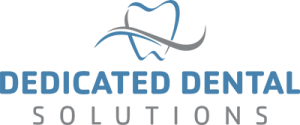Oral Cancer: Screening, Diagnosis, Treatment, Prevention
Oral cancer is a serious and potentially life-threatening disease that can affect any part of the mouth, including the lips, tongue, cheeks, gums, and throat. According to the American Cancer Society, approximately 54,000 people in the United States are diagnosed with oral cancer each year, and about 10,850 people die from the disease annually. Early detection and treatment are crucial for improving survival rates and reducing the risk of complications, which is why regular oral cancer screenings are so important.
Screening for oral cancer involves a thorough examination of the mouth and surrounding tissues to look for any signs of abnormal growths, sores, or other abnormalities. Dentists and other oral health professionals are trained to perform these screenings and can identify potential problems that may not be visible to the naked eye. During a screening, the dentist will look for signs such as red or white patches, lumps or bumps, or changes in the texture or color of the tissues. They may also use specialized tools to examine the inside of the mouth more closely.
Diagnosis of oral cancer typically involves a biopsy, which is the removal of a small sample of tissue for laboratory analysis. If the results of the biopsy indicate the presence of cancer, the patient will be referred to an oncologist for further evaluation and treatment.
Treatment for oral cancer may include surgery, radiation therapy, chemotherapy, or a combination of these approaches. The specific treatment plan will depend on the location and stage of the cancer, as well as the patient’s overall health and preferences. Surgery is often the first line of treatment for oral cancer, as it allows the surgeon to remove the cancerous tissue and surrounding lymph nodes. Radiation therapy and chemotherapy may be used before or after surgery to help kill any remaining cancer cells. Learn more.
Prevention is key when it comes to oral cancer. The following strategies can help reduce the risk of developing the disease:
- Quit smoking and using tobacco products: Tobacco use is a major risk factor for oral cancer, so quitting smoking and using other tobacco products can significantly reduce your risk.
- Limit alcohol consumption: Heavy drinking is also associated with an increased risk of oral cancer, so it’s important to drink in moderation or not at all.
- Practice good oral hygiene: Brushing and flossing regularly can help keep your mouth healthy and reduce the risk of developing oral cancer.
- Eat a healthy diet: A diet rich in fruits, vegetables, and whole grains can help support overall health and reduce the risk of cancer.
- Get regular dental checkups: Regular visits to the dentist for cleanings and checkups can help detect oral cancer early and improve the chances of successful treatment.
It’s important to note that attempting to screen for oral cancer at home is not recommended. Only trained oral health professionals have the expertise and equipment necessary to properly screen for and diagnose oral cancer. Additionally, many early signs of oral cancer may not be visible or noticeable to the untrained eye, making it even more important to see a dentist regularly for screenings.
In conclusion, oral cancer is a serious and potentially life-threatening disease that requires prompt detection and treatment. Regular screenings with a trained oral health professional are crucial for identifying potential problems early on and improving the chances of successful treatment. Additionally, taking steps to prevent oral cancer through healthy lifestyle habits and good oral hygiene can help reduce the risk of developing the disease. Next article.
